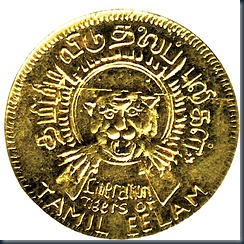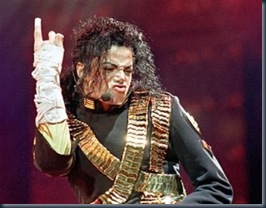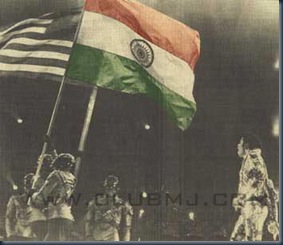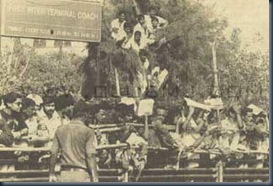From the Telegraph – London

December 23 1987 was a warm, clear day, and I was hiding under a plantana bush with eight of my comrades in a village north of Jaffna. With our rifles cocked and our cyanide capsules clenched between our teeth, we awaited the soldiers who had been scouring the area for us
for several hours. Our orders were to empty our magazines into them before biting into the glass capsules we called 'kuppies' that hung on a thread around our necks. As a Tamil Tiger guerrilla, there was no honour in being caught alive.
There had been 22 of us that morning – nine boys and 13 girls, aged between 15 and 26 (I was 17). Now, four of my comrades were missing, two were wounded. Ten were dead.
At dawn that day, Indian soldiers had surrounded our hideout, an abandoned house in Urumpiraay, a village in Sri Lanka's far north. As the war had intensified, our units were being squeezed out of Jaffna peninsula. We slept in different places each night: in open fields or houses taken by force.
Our sentry had spotted the enemy soldiers beyond a distant line of trees to the south, and Muralie, our unit's second in command, decided that we should flee north across an arterial road. The morning chill was still in the air and the dew dripped from banana leaves as we ran though fields and approached the road. As we attempted to cross it, we were ambushed from both sides in a barrage of automatic gunfire, grenades and mortars.
'Get on the ground!' Muralie commanded. 'Fire and break through!'
Everyone was screaming. We crashed to the earth as the gunfire grew heavier, now coming from behind as well. A helicopter gunship hovered above, strafing. We were surrounded. There was no cover other than a few palmyra and banana trees that dotted the landscape.
Lying on my stomach, I shuffled forward, following another girl, Ajanthi. My heart was pounding and thick smoke stung my eyes. In a state of panic, a few of my comrades attempted to cross the road. One by one, they fell. One was on her back, screaming, 'My leg, someone help me!'
A grenade flew over from my left. As I scrambled to my hands and knees, I realised Gandhi, our area leader, was in its path. 'Gandhi anna, duck!' I screamed. The grenade hit his head and exploded, ripping his skull apart and covering me with blood and tissue.
Ajanthi got to her knees, ready to dash across the road, then abruptly fell backwards, her arms and legs splayed awkwardly. Blood spurted from the centre of her forehead, soaking her auburn hair. In shock, the air left my lungs and I could not inhale it back. Ajanthi had been my friend since primary school and we had joined the Tigers together. She had been hit by a sniper.
I crawled forward holding my AK-47 with both hands, desperate to reach Ajanthi and drag her to safety. To my right, two comrades were trying to drag Muralie, who had also been hit, through the wet grass. His blood-soaked body kept slipping through their hands. As I reached Ajanthi our unit commander, Sudharshan, yanked me by the collar, dragging me with him.
'But Sudharshan anna,' I said, stumbling to my feet. 'We have to get Ajanthi, Muralie and the others.' 'They will follow us,' he said.
We ran through the fields and scrambled over a concrete parapet as rifle rounds flew from behind us, gouging holes in the wall. On the other side, we kept running and found five comrades. Seeing no means of escape, we took shelter under a large lantana bush.
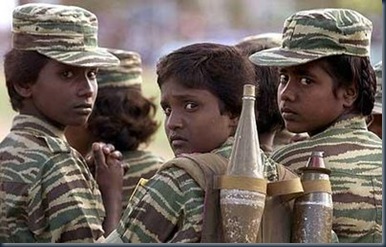
At sunset, confident that the soldiers had moved on, we set out through fields, supporting the injured, eventually reaching a gathering of huts on a narrow lane. News of our arrival spread
quickly, and a curious crowd assembled along the sides of the lane. Most had never seen female Tigers before. An old woman flung her bony arms around me: 'Ayyo, my poor child! Wouldn't your mother's heart break if she saw you like this?' I didn't realise then how I must have
looked – a starved teenage girl with torn clothes, caked in blood, barefoot and carrying an automatic rifle. Most villagers wanted us gone. If the enemy soldiers knew we were still around, they were sure to attack the village.
On Christmas Day we arrived at a hideout occupied by another Tigers unit. I sat outside on the mud veranda, thinking about the ambush. Since joining the Tigers, Ajanthi and I – and another girl, Akila – had been inseparable. The last time I had seen Akila she had been firing her M16 rifle from behind a water tank during the ambush. Sengamalam, one of the boys, told me that more than 2,000 soldiers had been involved in the round-up of our 22-strong unit, and had dumped the bodies of those who died in the open air. My mind swum with images of Ajanthi and Muralie, their bodies being scavenged by dogs.
I heard footsteps and looked up to see the silhouette of three figures approaching our hut. I recognised the tall Akila, her hair in plaits, and ran towards her. As we embraced she told me that, after the ambush, she had survived by hiding in the water tank for two days. 'I wish I was dead, like Ajanthi,' I spluttered. 'How will I face her family again?'
'We have to keep their dream of Tamil Eelam alive,' Akila said. For me, the dream felt far from reach.
I was born in 1969 in Kandy, a Sinhala-majority town in Sri Lanka's hill country, where I spent the first seven years of my childhood. Although I had Tamil ancestry – Tamils make up 18 per cent of Sri Lanka's population – my extended family included Sinhalese, Sri Lanka's main ethnic group. In 1978 I was packed off to the northern Tamil city of Jaffna to live with my grandmother, whom I hardly knew. 'So that you can become a doctor like your aunts and uncles,' my father reasoned. 'Education in Jaffna is far superior.' I was a confident, independent girl, and my parents believed that I would cope well in a new environment without them.
Though I was unsure about becoming a doctor, life in Jaffna was idyllic. Not knowing when I would see my family again, I began to distance myself from them and focused on shaping my own life, making new friends and working hard at school. My weekends were busy with music, art and drama lessons.
Soon after, my father, an engineer, went to work in Dubai (it was becoming difficult for Tamils to get good jobs at home). My mother, a teacher, and sister, who was three years my junior, joined me in Jaffna. I had been oblivious to the deep-rooted tensions that were simmering between the Tamils and Sinhalese, and knew nothing of the anti-Tamil riots that had killed more than 250 Tamils in the country the year before. But before long the growing unrest outside my sheltered world was hard to ignore.
Tamil pressure groups were becoming more vocal in their calls for equal rights between Tamils and Sinhalese, and an end to what many Tamils felt were the government's discriminatory policies. Meanwhile, Sinhala extremism in the south was growing. There were boycotts, strikes and skirmishes. There were reports of Tamil politicians being shot dead, Tamil students being kidnapped.
The quest for equality had spawned a number of militant groups, including the Liberation Tigers of Tamil Eelam (LTTE), known as Tamil Tigers outside Sri Lanka. In the late 1970s they had taken up an armed struggle for an autonomous Tamil homeland – Tamil Eelam – in the north
and north-east of the country. To begin with, they carried out minor attacks on government targets, but on July 23 1983, when I was 14, they ambushed an army patrol in Jaffna, which brought them into the national spotlight.
Thirteen soldiers died that day, but about 1,000 Tamils were said to have lost their lives in an anti-Tamil pogrom in the south that followed. Large numbers of Tamil men, mostly teenagers, reacted to what they saw as the Sri Lankan government's indiscriminate persecution of innocent Tamils and joined the insurgency, which was rapidly gathering support.
By 1985 the situation had escalated into full-scale war in the north and east, with the government launching a military offensive on Jaffna to wipe out the rebellion. From a normal happy upbringing, I now found myself living in constant fear. Jaffna's library, where I spent much of my free time, was burnt down by government forces.
We lived under indiscriminate aerial bombing and artillery shelling, day and night; our movements were restricted by long curfews. We spent many days in our home-built bunker where I studied, listening to gunshots and explosions, still hopeful that my exams would go ahead as scheduled. The Tigers' television station broadcast images of war: militant training camps, dead bodies, Tamil funerals. The images began to haunt me, and I felt outraged that no one was being held to account, and that the outside world was doing nothing.
The government launched further offensives and air raids became commonplace. Bodies were sometimes strewn by the roadside on my way to school, or hanging from lampposts. I was dismayed by the attitude of family and friends who believed that they had no power to change the situation, but didn't support the militant groups either. 'These movements are run mostly by uneducated, low-caste youth,' they said. 'They are not capable of solving the Tamil problem.' But at least they were trying, I thought.
The more I listened to the militants, the more I sympathised with the idea of an armed struggle, the more it seemed like the only response. There had never been any military connections in my family but I felt that if we were going to be killed or driven from our homes, then shouldn't we at least put up a fight? With friends, I talked about joining the insurgency, though few felt the same, believing that such actions would bring disgrace to our families. Middle-class girls didn't do such things.
In May 1987, when I was 17, the Sinhala government launched Operation Liberation, declaring all-out war against the Tamil militants on the Jaffna peninsula. By now, the Tigers had gained administrative control of the region, restricting government forces to their barracks. My mother decided that we would return to Kandy until the war was over. As we prepared to leave, I made up my mind to run away to join the Tigers. I told my mother that I was going to Ajanthi's to say goodbye.
After I told Ajanthi my plans, she said, 'I'll come with you for moral support', and we set off together for the office of the Student Organisation of Liberation Tigers, a large house near Jaffna
University. We were interviewed. They were hesitant about recruiting middle-class girls, but finally relented. Ajanthi said she would miss me too much if I left without her, and was enlisted, too.

'The life of a freedom fighter is harder than you think,' Thileepan, the leader of the Tigers' political wing, warned us, adjusting his spectacles. 'We gamble with our own lives and bury our friends. There'll be none of the comforts you are used to. I'm not convinced that you are suited to this lifestyle, but no one here is held against their will.'
Knowing my mother and sister were out, I went home and wrote them a note explaining that I had joined the Tigers. The following morning, naturally, my mother and sister and Ajanthi's family came to the Tigers' camp to plead with us to return home. 'You are about to ruin your life. This is not for you,' my mother said, grasping my hands, her eyes filled with tears. Ajanthi's father said we had been brainwashed.
Thileepan sent us to work with members of the Tigers' female political wing, the Freedom Birds, contributing articles to their magazine. At the Freedom Birds' headquarters, we met Akila, who at 17 was already an active member. We immediately became friends.
A few weeks later, Ajanthi and I were selected by Thileepan for military training, and sent to an all-girls' camp in an outer suburb of Jaffna. As we were the first group of female fighters to receive military training in Sri Lanka (at this point, there were fewer than 80 female Tigers), the organisation' s enigmatic leader, Velupillai Prabhakaran, wanted to talk to us personally. Prabhakaran was seated behind a table in his office as I entered. The flame from a hurricane lamp cast shadows across his round face, and his large brown eyes glistened.
Although he did not ask many questions, it felt like he knew everything about me. 'There's hardly anyone in our movement from your suburb,' he said. 'Most girls here come from rural areas. They are used to hard work, pounding rice and chopping firewood. Be in no doubt: training is going to be harder for you.'
Training, in a village south of Jaffna, was indeed gruelling. The days began with a two-hour exercise regime, followed by commando training. In the afternoons we had firing practice and lessons in explosives and camouflage. Prabhakaran would visit often, and one afternoon expressed his desire to recruit us into the newly formed Black Tigers, the organisation' s suicide bomber wing. Only a week earlier the first of the Tigers' suicide bombers, known as Captain Miller, had driven a lorry packed with explosives into an army barracks. Prabhakaran wanted to give women the same 'opportunity' , he said. I knew I could never do such a thing because I didn't have the courage.
As the war escalated, civilians were being drawn into the conflict, and a humanitarian crisis was developing in Jaffna. Eventually, the Indian government intervened. It was no secret that India had been fostering Tamil militants and providing them with training and ammunition, and the relationship between the Indian and Sri Lankan governments was strained.
Then the peacekeeping forces arrived, a ceasefire came into effect, and a peace accord was implemented on July 29 1987. The war-weary Tamils welcomed the Indian Peace Keeping Forces (IPKF) with open arms, and our training came to an abrupt halt. But Prabhakaran informed us that our services would be required in a month or two – he was sure that hostilities would resume by then. Like the Sri Lankan government, he did not appreciate the foreign intrusion.
So it came to pass. In September 1987, while other Tamil militant organisations engaged in the political process, Thileepan went on hunger-strike at the Nallur Hindu Temple near Jaffna in protest against certain aspects of the peace deal. Mass rallies were organised by pro-Tiger Tamils in Jaffna and also by Sinhala extremists in the south, both parties believing the IPKF's intervention served only to assert India's supremacy in the region. Fourteen days later, Thileepan died. The Tigers blamed the Indian government for his death, and for standing aside while Sinhalese forces violated the peace deal by arresting some prominent Tigers despite the amnesty provisions, and organising Sinhala settlement programmes in Tamil areas.

The war resumed, just as Prabhakaran had predicted, though now we were fighting not only the government troops but the peacekeepers, too. A few thousand youths suited only for guerrilla warfare, we were no match for the world's second largest army. Fighting the Indians made no sense to me.
I had joined the Tigers to make a stand against my country's oppressive government, but now found myself at war with those who had come to maintain peace. It seemed that we might be destroying our only chance of resolving the situation peacefully. I expressed my doubts to Akila. Fiercely loyal and single-minded, she argued that, as foot soldiers, we were unaware of the complex politics of the situation, and that our leaders knew exactly what they were doing. 'Believe that Anna Prabhakaran is always right,' she told me. I decided to ignore the growing disquiet inside me and joined the war.
In October 1987 I was sent to the battle front north of Jaffna where, by coincidence, Akila and Ajanthi joined me in a unit of 30 cadres. The first female Tiger had died only a few days earlier, confirming that women were now firmly engaged in frontline fighting. During battles we had been trained to fire in the general direction of the enemy, not at individual targets, and I am not sure whether any of my bullets hit anyone. I'm glad I don't know. I once asked the more experienced Muralie how he had coped with the knowledge that he had shot people. 'After your second victim,' he said, 'you learn to live with it.'
The Tigers had no chance of overpowering the Indian army. Jaffna and many surrounding areas were now under their total control. We were being ambushed on an almost daily basis, becoming accustomed to life on the run. Support among Tamil civilians was waning, too. Whenever we encountered them, they pleaded with us to stop this futile war.
By early 1988 self-preservation was now our main strategy. Forced out of the Jaffna peninsula by the IPKF and following an overnight boat trip, we found ourselves in the jungles of the Vanni in the Northeastern Province, where it was easier to lie low. I was now part of a large unit of nearly 45 girls, with Sengamalam, one of only two boys, in charge. We moved around the jungle constantly, enduring primitive living conditions, while 130,000 Indian troops searched for some 2,000 Tigers on foot and by air.
After five months in the jungle, I contracted malaria; many others were ill with dysentery and typhoid. Akila stayed by my side, taking care of me, bringing medication and rice water in a rusty tin. I felt broken, physically and emotionally, constantly questioning the purpose of a war that could clearly never be won.
I had believed the militant propaganda, convinced that Tamil Eelam could be achieved within a year or two, but it was now clear that an armed conflict would resolve nothing. 'You are free to go home any time,' Thileepan had told me. It was time to walk away while I still could. One morning in June 1988, at a house near the forest where we had taken shelter following an attack on our hideout, I approached Sengamalam as he washed at a well.
'I want to resign.'
He stopped drying his face with a sarong and looked at me with alarm.
'Is someone giving you grief?'
'I just can't cope any more,' I said. 'I am tired of this war. I'm weak.'
Calmly, he said that he was sorry, that he was surprised I had lasted so long. 'I must warn you,' he said, 'your life will be in grave danger – from the Sri Lankan army, Indian forces, even rival
organisations. Your name is on their wanted lists.' I didn't care. Surrendering my rifle and kuppie, I severed all ties with the Tigers, unsure of what the future held or whether my family would take me back.
Before I left, I went to say goodbye to Akila. When she saw me wearing a dress, her jaw dropped. 'What's going on? You're leaving?' Consumed with shame, I could hardly speak. 'I can't believe you're leaving me,' she sobbed. 'We have so much to achieve.'
Before I could answer, Sengamalam hurried Akila into the forest and I watched her fade into the bright sun. I never saw her again.
Sengamalam organised for a local boy to take me to an old woman's hut in the nearby town of Kilinochchi. For the next seven days, the old woman and I did not exchange a word or a smile.
One afternoon, while I helped herd her cattle into the shed, I saw my mother running towards me down the dirt lane. The mayor of Kilinochchi, a distant relative of ours, had bumped into the Tamil boy who had taken me to the old woman's hut. The mayor was carrying a photograph of me that my mother had sent him and asked the boy if he had seen me. Once I had been identified, the mayor fetched my mother. The only emotion I felt was relief, as if I was no longer capable of experiencing happiness or sadness. My mother embraced me and sobbed while I stood numb.
'I thought you might have disowned me,' I said, finally.
'You're my daughter,' she replied. 'I'd never give up on you.'
Within two months of being re united with my family, during which time we never discussed my experiences with the Tigers, I was sent to a boarding school in India, where I completed my studies.
Although now in the country whose army I had fought only months before, I was determined to move on, and make the best of the second chance I had been given. On the surface, normality had returned. My fellow students were girls from affluent families who liked talking about boys, movie stars and make-up. When the lights in our dormitory were turned off at night,
I cried myself to sleep.
In 1990, with help from a relative, I moved to Sydney (my family later moved here, too) and went to university. After my departure from the Tigers, and with a new life opening up to me, I blocked out any news of Sri Lanka as best I could. These days, of course, that is impossible.
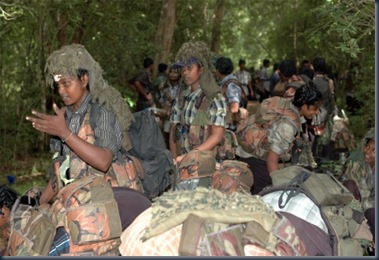
The two-year war between the Tigers and the Indian forces came to an end in July 1989, with changes of government in both countries. But the fighting between the Tigers and Sri Lankan government forces continued. The primitive but effective guerrilla organisation that I left behind grew into a sophisticated and formidable fighting force. As its methods became more extreme, the LTTE's notoriety increased – not just within Sri Lanka but all over the world. (In late 2001 it was classified as a terrorist organisation by many countries, including Britain.)
The Tigers have carried out hundreds of suicide attacks over the past two decades – more than all other radical organisations in the world combined – notably the assassination of the former Indian prime minister Rajiv Gandhi in 1991 and the Sri Lankan president Ranasinghe Premadasa in 1993. The guiding principle of the Tigers, which is so difficult for outsiders to understand, is that the greater the sacrifice, the higher the honour. There are no bravery medals or pompous ceremonies for living Tigers. They are recognised for their efforts, and awarded a rank, only posthumously.
The past decade has seen several attempts to form a lasting peace agreement between the Tigers and the government, all unsuccessful, with the most recent deal being torn up in early 2008. Since 2006 the LTTE's numbers have fallen sharply, funding from the Tamil diaspora has dwindled while government forces stepped up their campaign.
At the beginning of this year, a number of crucial Tiger strongholds were recaptured, and the government was confident it would annihilate the remaining 1,000 or so Tigers within months. After three decades, the civil war – which has claimed more than 70,000 lives, including at least 23,000 Tigers – appears to have reached its endgame, the Tigers on the verge of a final, crushing defeat. The Tamils are, it seems, back at square one.
In fact, the situation may be worse than ever, with the UN estimating last month that 150,000 civilians were trapped in the eight-square- mile battle zone, under constant threat of bombing from government forces and being used as human shields by the increasingly desperate Tigers. Some human rights groups have condemned the Sri Lankan government for practising ethnic cleansing against them under the guise of fighting terrorism.
Although the Tigers have staged many comebacks in history, the latest government offensive may prove fatal. But the scars of this war will remain and until a political solution that recognises and respects the rights of the Tamil people is reached, I am certain that the Tamil fight will continue in one form or another.
More and more these days, my thoughts turn to the friends I have lost. Recently, for the first time, I typed Akila's name into Google and found several archived reports and court documents. Akila died on November 1 1995, in a battle against the Sri Lankan army in Neervaeli, a town for which we had fought side by side. With defeat imminent, she ordered the members of her unit to bite into their cyanide capsules, and then did the same herself. She was 24. After her death, she was awarded the highest rank achievable in the Tigers at that time: lieutenant colonel.
The most shocking detail was that she had been wanted for masterminding, along with Prabhakaran, the killing of Rajiv Gandhi. The suicide bomber and her collaborators had been members of Akila's unit, as I might have been if I had not walked away from the Tigers.
On the surface, my life goes on as a happily married mother in an affluent Sydney suburb who enjoys reading, travelling and gardening. But often, in my dreams, I am being chased by soldiers or hanging off the side of a cliff, unable to save myself. It has taken me a long time not to panic when I hear a helicopter overhead.
I rarely discuss my past. Some people cannot believe that someone with my grounded life could have done such things. Others probe deeper, asking if I regret picking up a gun with the intention of killing others. Of course, some will never understand; others may consider me
a former terrorist.
The world has changed since I left the Tigers, just as the Tigers themselves have changed. In this age of terrorism it is easy to dismiss all rebel groups as evil extremists, without considering the desperate circumstances that drive people to align themselves to such organisations.
I tell people that the only reason I joined the war was to defend my people, because I felt there was no other choice. I was not coerced to join the insurgency. As an idealistic 17-year-old, I believed in the power of the individual to make a difference.
Looking back, I recognise the elements of reckless, selfish teenage rebellion in my behaviour. Naively, I had not anticipated how much my family would suffer as a consequence of my actions, and for that, above all else, I am deeply sorry. To this day, my parents have never asked me about my time as a guerrilla. As a mother myself, I understand why: that they must somehow have felt that they had failed in their duty as parents.
I hope that my own children will grow up with firm, positive views, but without the blind idealism I had all those years ago. I will try to teach them tolerance and empathy, that the end doesn't always justify the means, and that violence always breeds more violence. I learnt that lesson the hard way. Sadly, I don't think Sri Lanka has learnt it at all.
